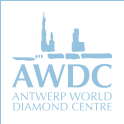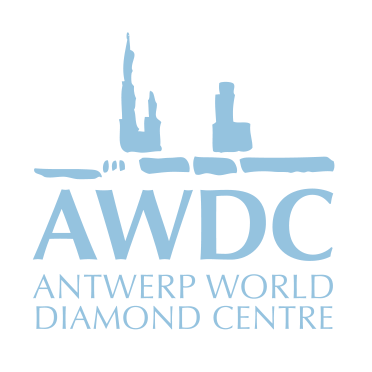- G7/EU Sanctions
- Registered Diamond Companies
- Banking and Taxes
- Antwerp Diamond Tender Facility
- Diamond Office
- Resources and Regulations
- Sponsorship Request
- Brilliant Benefits
- AD Jobs
- Doing Business in Antwerp: Contact List
- Starting a Business in Antwerp
- 1. Formalities, Registrations and Declarations for Diamond Traders
- 2. Founding a Company in Belgium
- 3. Types of Companies in Belgium
- 4. Methods to Acquire Companies in Belgium
- 5. Commercial Property
- 6. Insurance
- 7. Labour in Belgium
- 8. International Agreements
- 9. Subsidies in Belgium
- 10. Intellectual Property
Formalities and registrations
Every diamond trader registered in Belgium is obliged to fulfil certain formalities discussed below. Although there is no obligation, it is recommended to
+ Register at the Diamond Office (see below)
+ Become member of the Diamond Bourses.
In order to work efficiently it is advisable to fulfil the formalities in the following order.
Obtaining the professional card
Non-EEA citizens[1] or persons who do not have the Swiss nationality, wishing to carry out an independent activity in Belgium as a natural person or representative of a company or association must apply for a professional card (beroepskaart).
If you live abroad the application form must be submitted to a Belgian Embassy[2] or consular service post in your country of residence[3].
If you already live in Belgium and are in possession of valid electronic foreigner card A or a registration certificate A ( attest van immatriculatie A) also known as the `orange card´, the application form below must be submitted to a recognised Company Counter (ondernemersloket) of your own choice, who will then transfer it to the Regional Economic Migration Service[4]. In order to be granted a professional card (beroepskaart), several criteria need to be met:
- A legal permanent or temporary residence in Belgium;
- Compliance with all applicable regulations in the sector you will be working in;
- The work you will be carrying out in Belgium must have a certain level of importance for Flanders: that interest is assessed in terms of economic benefits, such as responding to an economic need, job creation, useful investments, the economic impact on businesses in Flanders, promoting export, innovative or specialized activity. (to the discretion of the above mentioned Regional Economic Migration Service ).
The professional card is valid for one year. When the renewal application is submitted it will be checked whether the value for Flanders as provided in the first professional card application (eg. job creation, investment,...) was effectively realized.
Therefore, it is important to have a complete and comprehensive first file before submitting. It is advisory to be assisted by a specialized lawyer during the completion of that process.
For more information on professional cards, please contact the Regional Economic Migration Service (see list of contacts[5]) or http://www.vlaanderen.be/nl/ondernemen/vergunningen-en-regelgeving/beroepskaart-voor-vreemdelingen
1 The European Economic Area (EEA) was established on 1st January 1994 following an agreement between the member states of the European Free Trade Association (EFTA) and the European Community, later the European Union (EU).[2] More specifically, it allows Iceland, Liechtenstein and Norway to participate in the EU's Internal Market without conventional EU membership. So Non-EEA citizens are citizens living outside the EU, Iceland, Liechtenstein and Norway.
3 The application form for foreigners can be found under section 5 ‘Hoe uw aanvraag indienen?’. The first document: ‘Aanvraagformulier beroepskaart voor vreemdelingen, needs to be completed.
4 Puur ter info: De aanvragen worden sinds 1 januari 2015 behandeld door de gewestelijke dienst Economische Migratie
5 Zie aanpassing bij de lists of contact
Registration at the Crossroads Bank for Enterprises
If you will be carrying out an independent activity for your own account instead of working as an employee in a Belgian firm, you need to present yourself at a Company Counter (Ondernemingsloket) to be registered with the Crossroads Bank for Enterprises (Kruispuntbank, also known as KBO), where you will be issued with a unique enterprise number.
Please review the list of contacts to find the contact details of a few Company Counters (Ondernemingsloket) in Antwerp.
VAT registration
All persons carrying out an economic activity on a regular and independent basis, and providing goods or services which are not fully exempt from VAT by law, must charge value added tax (VAT) and must therefore register for a unique VAT number. VAT is calculated on the tax base at a rate, which depends on the nature of the transition, which can be 6, 12 or 21%.[1]
Special regulations apply for the Belgian diamond industry. According to Article 40 §1 and 42 § 4 of the VAT-legislation (Wetboek van de Belasting op Toegevoegde Waarde) the following transactions with regard to diamonds are exempt VAT:
- Supply of unmounted diamonds[2] to Belgian registered diamond traders (including diamond manufacturers) exclusively trading in unmounted diamonds;
- Import of unmounted diamonds by Belgian registered diamond traders (including diamond manufacturers) exclusively trading in unmounted diamonds;
- Services with regard to unmounted diamonds provided to Belgian registered diamond traders (including diamond manufacturers) exclusively trading in unmounted diamonds.
The export of goods – including diamonds – performed by (or for the account of) the trader (in this case the Belgian diamond trader) is always exempt VAT (art. 39 VAT-Legislation).
For more information please read the chapter on Tax and if necessary contact an accountant. You can find several suggestions in the list of contacts.
1 KB van 7 juli 2003, ‘tot vaststelling van de tarieven van de belasting over de toegevoegde waarde en tot indeling van de goederen en de diensten bij die tarieven’; B.S. (Official Gazette), 22.07.2003
2 strictly for unmounted diamonds. Therefore when combined with jewellery there is no exemption from VAT
Registration of your company with the Federal Public Social Security Service
In Belgium, every employer is obliged to contribute to Social Security. If you intend to hire staff, you are obliged to register with the Federal Public Social Security Service. More information can be found in Chapter "Labour in Belgium".
Registration as sole trader with the National Institute for the Social Security of the Self-employed
If you are a sole trader (see Chapter 2 below), you must register as a sole trader with the National Institute for the Social Security of the Self-employed.
As a sole trader, you are responsible to pay social contribution making registration mandatory before the starting of any business activity. Consequently, you must register as a sole trader in one of the available Company Counters. Please find the contact details in the Annex.
In return to your contributions, you’re entitled to several rights such as an insurance for bankruptcy, a health insurance and more. Beware that an additional registration with a Health Insurance Fund is needed if you want to benefit from the health insurance.
Pay attention, the category of sole traders who need to fulfil the registration requirements for insurance contribution is broad. For example- the partner as well as any ‘helper’ older than 20 years, are included in this category.
Obtaining the registration as a Belgian diamond trader
Every diamond trader based in Belgium is obliged to register with the License Service of the Federal Public Service Economy in Antwerp. According to the Royal Decree of April 30, 2004 amended by the Royal Decree of August 26, 2010, one should register as a diamond trader when conducting a commercial activity with regard to diamonds as main occupation or on the side (including producers using diamonds when manufacturing equipment), except if one is exclusively dealing with insurance and/or financing of the diamond trade.
When registered as a Belgian diamond trader you need to present the following documents at the License Service of the Federal Public Service Economy:
1. Copy or proof of the ID card or National Register number (Rijksregister- nummer) of all administrators;
2. Definite proof of the enterprise number allocated by the Crossroads Bank for Enterprises (Kruispuntbank voor Ondernemingen);
3. For companies, a copy of the notarised memorandum of association which is drawn up and provided by the notary and/or an excerpt from the Belgian Official Gazette (Belgisch Staatsblad/Moniteur Belge), which can also be provided by the notary (please check chapter ‘Founding of a company in Belgium’);
4. The professional card (beroepskaart; please check chapter ‘Formalities and Registrations) or work permit (please check chapter ‘Labour in Belgium’) of all administrators, paid or unpaid, when they are foreign nationals and not E.E.A. citizens or Swiss nationals.
5. For persons represented by a representative (also called a proxy): proof of authorisation signed by both parties + proof of ID of the authorised representative.
The Federal Public Service Economy is the competent federal government authority in Belgium for several regulatory and monitoring aspects related to the supervision of the diamond trade in Belgium. Their contact details can be found in the list of contacts.
This monitoring system consists of the registration of diamond dealers, the provision of import- and export licences, the supervision on physical inspections of import and export diamond shipments (see Chapter on Diamond Office), the annual declarations of stocks and activities by diamond dealers (see below), the implementation of the Kimberley Process Certification Scheme (see part C on Sector Specific Regulations), the implementation and supervision of the anti-money laundering legislation (see part C on Sector Specific Regulations) and lastly, the monitoring of the system of industry self-regulation (see part C on Sector Specific Regulations).
Once the registration as a diamond trader is obtained, a specific document will be given to the diamond trader, containing a unique registration number, which must be kept at all times. After registration you will be added on the website http://www.registereddiamondcompanies.be where you can find all the registered diamond traders with their registration numbers and contact details.
Registration with the Diamond Office
Diamond Office – a department of the Antwerp World Diamond Centre (AWDC) –functions as the controlling body for import and export of diamond shipment in cooperation with the Federal Public Service Economy and the Federal Public Service Finance (customs). In principle Diamond Office functions as:
- A control body for all import and export of unmounted polished and rough diamonds, industrial diamonds, boart, synthetic diamonds, diamond powder for the Belgian government;
- A service provider drafting all the import and export declarations of diamonds for the Belgian diamond sector and providing overall assistance to the diamond trader for all matters regarding the import and export formalities.
Next to the personnel of Diamond Office, two Federal Public Services are hosted inside the premises of Diamond Office:
- Licence service of the Federal Public Service Economy: responsible for the physical control of all (intra and extra EU ) incoming and outgoing diamond parcels. These controls are performed by sworn in experts, working under supervision of the Licence service of the Federal Public Service Economy.
- Federal Public Service Finance - Customs: Diamond Office is the only Customs office in Belgium where you can declare the import and export of diamonds. Customs perform an electronic control on all import and export declarations made up by Diamond Office. For the physical verification (selection on risk assessment basis), they make use of the sworn in experts.
With this triple line of control (Diamond Office, Federal Public Service Economy and Federal Public Service Finance - Customs), the Belgian diamond sector is the most controlled sector worldwide!
When engaging in import and/or export of diamonds (outside the EU) it is compulsory to register at Diamond Office. Considering the many advantages of the service of Diamond Office, it is also advisable for trade inside EU to register at the Diamond Office.
For more information on registration, the tariffs or the support services of Diamond Office, please contact us or visit the website of Diamond Office: http://www.diamondoffice.be
For more information on import and export of diamonds and the role of Diamond Office see the Chapter on Import and Export of Diamonds: https://www.awdc.be/en/import-and-export-diamonds
EORI number
Every company or sole trader based in the European Union who is engaging in import and export activities with countries outside the European Union is obliged to register for an EORI number (Economic Operators Registration and Identification number). The EORI number is a unique identification number, which is valid throughout the European Union, assigned by a Customs Authority in a Member State to a company or a sole trader. Once the EORI number is obtained this number will have to be used in all communication with any EU Customs Authority.
The application to obtain an EORI number must be submitted to the Customs Office in Brussels (Enig Kantoor der Douane en Accijnzen or Bureau Unique des Douanes et Accises) (http://fiscus.fgov.be/interfdanl/nl/enterprises/eori.htm). Depending on the specific situation of the economic operator applying, the correct application form needs to be filled in.
The different blank application forms are available on the website of the Customs Office. On this website you can verify whether or not a specific EORI number was already validated. For further questions on this matter you can contact the EORI department.
Registration with the Diamond Bourses
Diamond Bourses (or exchanges) are institutions representing diamond traders and act as real marketplaces where diamond sellers and buyers can meet in amicable surroundings. Goods can be displayed and examined in high-tech conditions on site, while the open atmosphere helps to create healthy competition. Antwerp is the only diamond centre to have four Diamond Bourses, namely the “Antwerpse Diamantkring”, the “Beurs voor Diamanthandel”, the “Diamantclub van Antwerpen” and the “Vrije Diamanthandel”.
All four Bourses have a common membership contribution rate for the membership of all Bourses at once. In accordance with the so called “Fusion Four” agreement, the annual rates stated below are applicable as from January 2012. By paying the contribution to one of the four Bourses, traders will have access to all Bourses.
Normal rate: €820,-
Special rate for shareholders with 1 share: €675,-
Special rate for shareholders with 2 shares: €550,-
The Bourses have adopted rules and regulations obliging them and their members to respect specific principles and procedures set out by the Kimberley Process Certification Scheme. By being a member of the Diamond Bourses, a diamond trader or diamond company gains extra benefits, for example the privilege of a “fast track issuance of Kimberley Process certificates” (please check chapter on Rough Diamonds – Kimberley Certification Scheme for more information) when exporting rough diamonds (outside the EU).
Another benefit is that the diamond traders have the opportunity to submit their disputes with other diamond traders to the reconciliation commission and/or arbitration commission of the Bourse of which one of the diamond traders is a member. The reconciliation commission and the arbitration commission are departments of the diamond bourse that settle disputes arising between diamond traders who are members of one of the diamond Bourses. Please check the chapter on reconciliation and arbitration at the diamond bourses for more information.
Please find the necessary contact information of the four Antwerp Diamond Bourses in the list of contacts. All of the Bourses are members of the World Federation of Diamond Bourses (www.wfdb.com) being the umbrella organisation for all Diamond Bourses, also located in Antwerp.







